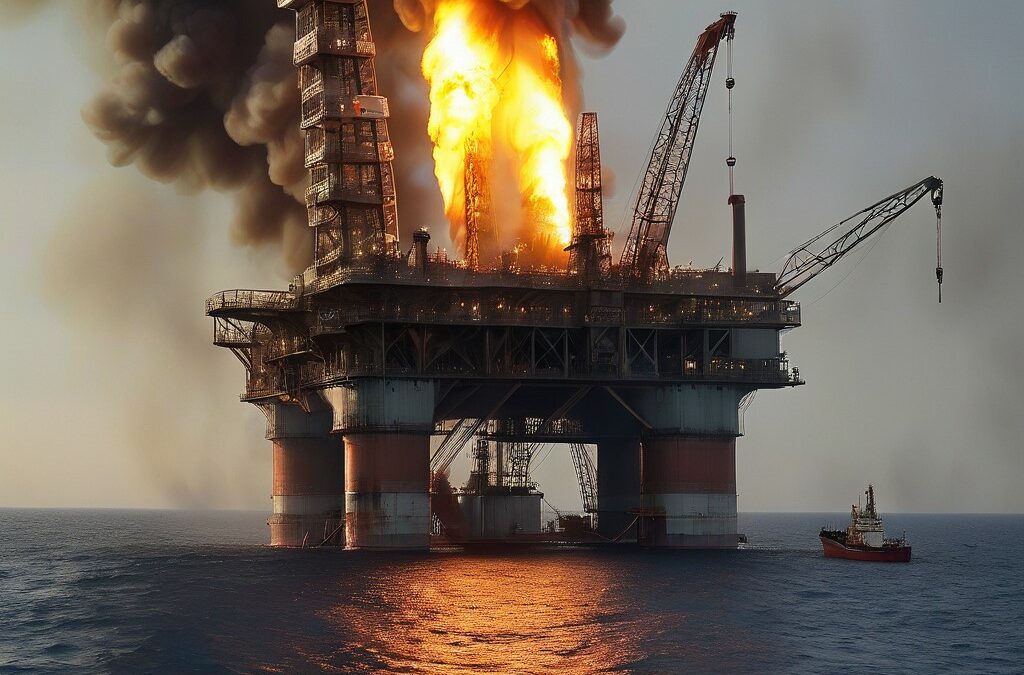The cart is empty!
Ignite Your Future: The Power of ICorr PFP Certification
Passive Fire Protection (PFP) is a fundamental component of infrastructure resilience in the oil, gas, and energy sectors. As steel structures and facilities become increasingly sophisticated, it’s clear that there is a significant demand for inspctors with PFP qualification who can navigate this complexity and uphold rigorous safety standards.
PFP inspection is an exciting, demanding, and rewarding path to follow. Aspiring PFP Inspectors must gain relevant qualifications tailored specifically to the nuanced demands of the oil, gas, and energy industries.
The question is, what is the essential qualification in Passive Fire Protection Inspection to boost your career in the oil, gas, and energy industry?
Understanding Passive Fire Protection – The Basics
PFP is characterised by the use of materials and systems designed to contain or slow the spread of fire and smoke in steel structures, without the need for human intervention. This encompasses a range of solutions, from intumescent coatings to fireproof cladding, all engineered to enhance the structural integrity and safety of facilities within the energy sector and save lives.
The Role of PFP in Steel Structure Safety
In the context of oil, gas, and energy installations, PFP plays a pivotal role in mitigating the risk of catastrophic failures. By ensuring the integrity of steel structures in extreme conditions, PFP systems provide critical evacuation time for personnel and safeguard essential services, thereby also minimising potential environmental and economic impacts.
The Pathway to Becoming a PFP Inspector
Although it’s not mandatory, an educational background in engineering, materials science, or a related discipline offers a solid starting point for aspiring PFP inspectors. When such a theoretical grounding is coupled with specialised PFP training, you’ll be equipped with the requisite competencies for the role.
Individuals who have sound, time-served experience in the use of protective coatings to provide corrosion protection to steel structures in the oil, gas, and energy industries would also be well placed to commence education in the inspection of PFP materials.
In addition, hands-on experience and mentorship are invaluable. This will help you to hone your skills and deepen your technical understanding and ability. When you are exposed to PFP applications within the energy industry, PFP qualification will be accelerated, and you’ll be better prepared to manage the complexities of the role of a PFP Inspector.
There are numerous PFP qualifications available, but figuring out which is the most pertinent for the oil, gas, and energy sector is crucial for your career progression. Not all qualifications carry the same weight or relevance in this specialised field.
The ICorr PFP Inspector Certification
“This training provided me the confidence to challenge what I might see on site as non-conforming or poor practice during installation.” Course participant.
In conjunction with PFPNet, ICorr has been meticulous in the development of its PFP training programs. The partnership between these two industry-leading bodies has ensured course material is not only rooted in theory, but is also enriched by its authors who have decades of practical, real-word experience.
It’s a course that not only looks at the right way to conduct PFP installations and what to look for to prevent problems at the time of installation. It also provides you with the knowledge and awareness to consider the future service life of the installation.
It’s an unmatched source of knowledge that highlights the practical nuances of PFP material installation. Course participants frequently applaud the training for its detailed coverage of installation processes, critical distinctions between PFP materials and conventional coatings, and insights into potential installation pitfalls.
“This is a detailed and comprehensive course in all the key elements for installation of PFP materials.” Course participant.
The breadth and depth of course content will equip you with the confidence to identify and address non-conformance and poor practice on site, underscoring the course’s value in career development within the oil, gas, and energy sectors.
Benefits of Achieving ICorr PFP Inspector Qualification
Embarking on a career as a PFP inspector within the oil, gas, and energy industry is a journey marked by rigorous training, practical experience, and ethical commitment. Certification is key to your career trajectory.
When you become qualified at Level 2 or Level 3 PFP Inspection with ICorr/PFPNet training, you’ll be recognised for your expertise and dedication in the field. It signals your command of the intricacies of PFP, and your preparedness to contribute to the safety and integrity of critical infrastructure.
In a globally recognised profession, in which international standards shape practices across both local and global projects, ICorr/PFPNet certification demonstrates your familiarity with these standards. It also highlights an ethical approach, in which the responsibility to ensure the safety of infrastructures and personnel is paramount.
In short, the ICorr PFP Inspector Certification not only signifies professional competence but also opens doors to a rewarding career dedicated to safeguarding critical infrastructure against the threat of fire. Want to know more? Then please reach out to the admin team at ICorr or email IMechE Argyll Ruane.


